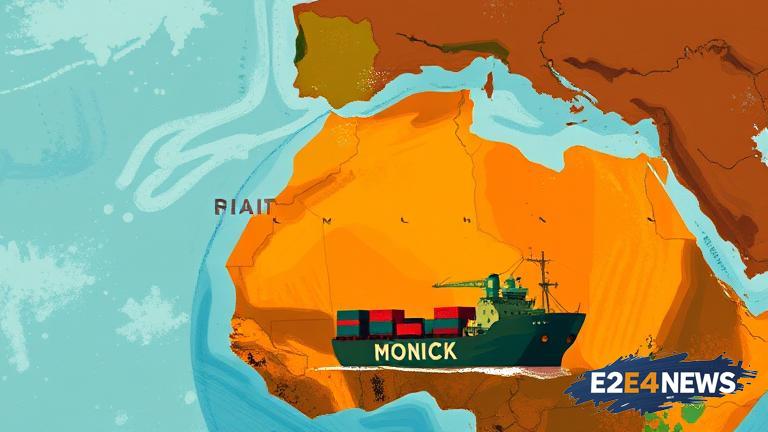African nations have long been dependent on foreign shipping companies to transport their goods, resulting in significant losses in revenue and economic growth. However, in recent years, many African countries have come to realize the importance of reclaiming their shipping lanes and taking control of their maritime trade. This move is expected to boost economic growth, create jobs, and increase revenue for African nations. The African Continental Free Trade Area (AfCFTA) agreement has also played a significant role in promoting regional trade and economic integration. By developing their own shipping lines and improving maritime infrastructure, African countries can reduce their reliance on foreign companies and increase their competitiveness in the global market. This will also enable them to negotiate better trade agreements and protect their interests. Furthermore, reclaiming their shipping lanes will allow African nations to tap into the vast potential of their maritime resources, including oil, gas, and fisheries. The development of maritime infrastructure, such as ports and shipping lanes, will also create new opportunities for trade and investment. In addition, African countries are working together to establish a unified maritime policy and regulatory framework, which will help to promote cooperation and coordination among member states. The African Union has also launched several initiatives aimed at promoting maritime trade and economic development, including the African Integrated Maritime Strategy (AIMS). This strategy aims to promote the development of a vibrant and competitive maritime industry in Africa, and to increase the continent’s share of global maritime trade. Moreover, many African countries are investing heavily in the development of their ports and shipping infrastructure, including the construction of new ports, terminals, and shipping lanes. For example, the port of Djibouti has become a major hub for maritime trade in the region, with several international shipping companies operating from the port. Similarly, the port of Lagos in Nigeria is one of the busiest ports in West Africa, with a significant volume of trade passing through it every year. Other African countries, such as South Africa, Egypt, and Morocco, are also investing in the development of their maritime infrastructure, including the construction of new ports and shipping lanes. The development of maritime infrastructure is also expected to create new opportunities for trade and investment in other sectors, such as manufacturing, agriculture, and tourism. Furthermore, the growth of maritime trade is expected to have a positive impact on economic development in African countries, by creating new jobs, increasing revenue, and promoting economic growth. In conclusion, African nations are taking a significant step towards reclaiming their shipping lanes and promoting economic growth through improved maritime trade and infrastructure development. This move is expected to have a positive impact on economic development in the region, and to promote cooperation and coordination among African countries. With the support of regional and international organizations, African nations are well on their way to becoming major players in the global maritime industry. The future of maritime trade in Africa looks bright, with many opportunities for growth and development. As African countries continue to invest in the development of their maritime infrastructure, they are expected to become more competitive in the global market, and to increase their share of global maritime trade. This will have a positive impact on economic development in the region, and will promote cooperation and coordination among African countries. African nations are also working together to address the challenges facing the maritime industry, including piracy, pollution, and climate change. By working together, African countries can promote a safe, secure, and sustainable maritime industry, and increase their competitiveness in the global market. The development of maritime infrastructure is also expected to promote economic growth and development in other sectors, such as manufacturing, agriculture, and tourism. In addition, the growth of maritime trade is expected to create new opportunities for trade and investment in Africa, and to promote economic integration and cooperation among African countries.
